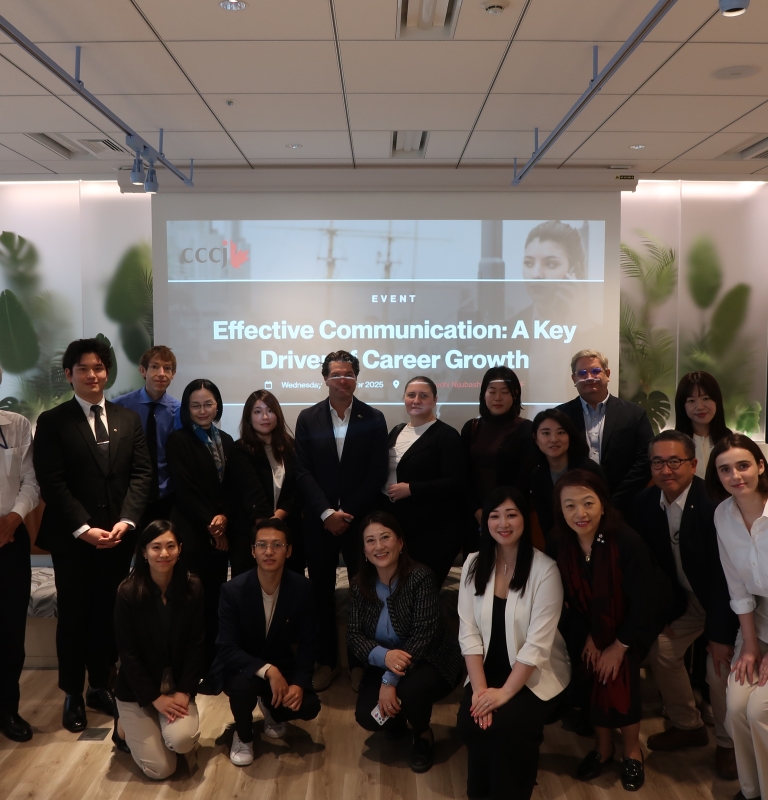
News
Recap of CCCJ Speaker Series Vol. 2: The post-pandemic Japan-Canada trade relationship
Recap of CCCJ Speaker Series Vol. 2: The post-pandemic Japan-Canada trade relationship
Once again, here’s a quick recap of the CCCJ Speaker Series Vol. 2 on Wednesday, Jun. 17th.
David Bostwick, Counsellor (Commercial/Trade Policy) at the Embassy of Canada in Tokyo, gave an overview of the Canada-Japan trade relationship. Canada is the 10th largest economy in the world and predicted to grow to the 8th largest by 2029. Canada is Japan’s 16th largest trading partner, ranking above countries like France, India and Brazil. Japan is Canada’s 3rd largest source of foreign investment, almost twice the size of Chinese investment in Canada. Major areas of focus for Canada during the post-COVID-19 economic recovery will be energy, agricultural security, critical minerals and innovation.
David Anderson, Managing Director of the Alberta Japan Office spoke about the importance of Alberta’s role in the security of supply to Japan of energy and agriculture. With Japan having the lowest food and energy self-sufficiency ratios of G7 nations and Canada the highest, Anderson emphasized that there is a tremendous opportunity to strengthen the bilateral relationship, noting that a united Canada approach is key to success in the market.
David Brulotte, Délégué général, Délégation générale du Québec à Tokyo shared examples of recent Québec trade and investment activity with Japan. Quebec has seen recent investment by major Japanese players in the video games industry as well as in the VC sector. The agri-food sector is also showing strong signals and the Government of Quebec is strengthening its position in the lithium and battery manufacturing capabilities for EV, with Japan being a key potential partner. Technology companies and in the entertainment, arts/culture are also strong areas for trade development and an important Montreal technology incubator recently signed an MOU with a major incubator in Shibuya to work on joint projects.
David T. Perdue, Counsellor (Commercial-Ontario) at the Embassy of Canada in Tokyo, Ontario Trade and Investment Office, spoke about key sectors of focus in the Ontario-Japan economic relationship, such as the automotive sector, aerospace, ICT and life sciences. Positive impacts from Covid-19 have included export sales to Japan of PPE such as high-quality, made-in-Ontario masks, and reimagining large gatherings like the Collision Tech conference, which is to be held online this year and is attracting a large delegation of Japanese corporate participants.
Thank you very much to all our panel members, attendees and our moderator, Annamarie Sasagawa.



























